
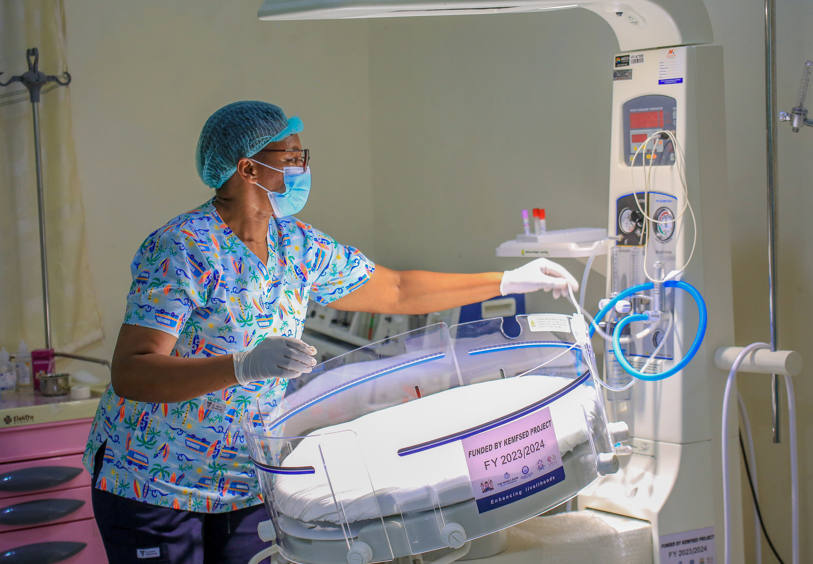
In the quiet ward of
Port Reitz Sub County Hospital, Sharlet Saumu Wambua gently cradles her
newborn, her arms wrapped tightly around the tiny body pressed against her
chest. Her eyes, filled with a mix of relief and gratitude, flicker with
memories — of loss, of waiting, of prayers answered.
“This is my fifth pregnancy,” she whispers. “But I lost three of my babies before this one. This is the first time I’ve received such good care at Port Reitz without being told to go somewhere else.”
Sharlet’s baby, born prematurely, rests against her skin in the Kangaroo Mother Care (KMC) ward — a warm, intimate room where mothers provide life-sustaining contact to their vulnerable infants. It’s a simple act of love with transformative medical impact. And it’s a possibility that didn’t exist at Port Reitz just a year ago.
Today, thanks to a landmark investment by the Kenya Pipeline Company (KPC) Foundation, the hospital has undergone a quiet revolution — one that is rewriting maternal and child health outcomes in Mombasa County.
A Long-Awaited Lifeline
Until January 2025, Port Reitz — a busy level-four public hospital — served as a critical access point for thousands of women in Changamwe and Jomvu sub-counties. But despite its central role in maternity care, it lacked one essential feature: a dedicated newborn unit.
For mothers like Sharlet, the consequences were stark. “My last two pregnancies were very difficult. Each time, I was told the hospital had no nursery, and I’d be referred to Coast General,” she recalls.
The referrals often came with delays, panic, and tragic losses. Babies needing urgent intervention were transported in ambulances through Mombasa’s heavy traffic — sometimes too late to make a difference.
“When I came to deliver here this time, I was served very well. The nurses were kind. The machines were ready. And I wasn’t referred anywhere,” she says. “I kept praying I wouldn’t be transferred, and God answered my prayer.”
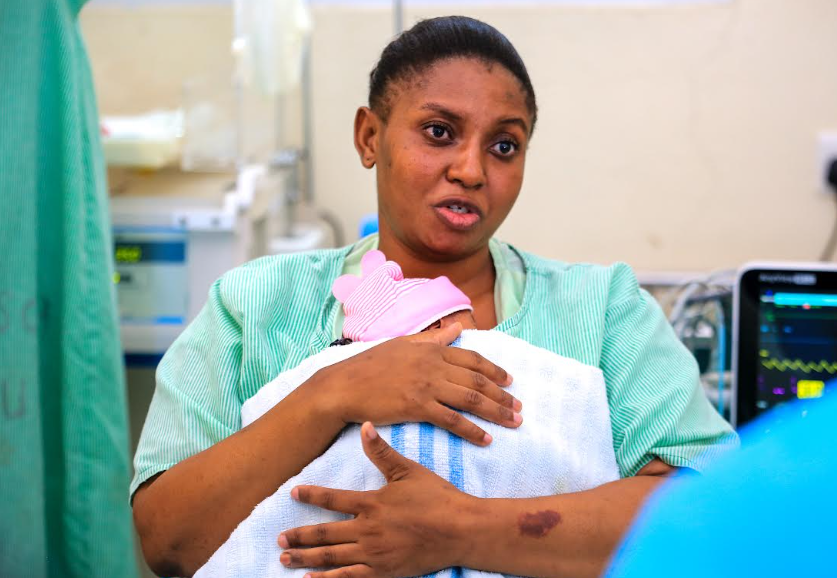
A Project Rooted in Urgency
In late 2024, Port Reitz officially launched a fully equipped newborn unit — a Sh 8 million investment that came to life through a partnership between the Mombasa County Government and the KPC Foundation.
“This is the newest baby on the block for us,” says Dr. Riziki Mulemba, the hospital’s Medical Superintendent.
She explains that the unit was a necessity born out of an overwhelming, long-ignored gap.
“Previously, the only public hospital in the county that had a newborn unit was Coast General. That meant any complications here had to be immediately transferred. That delay could — and often did — cost lives,” she says.
The facility now boasts 15 neonatal cots, four incubators, baby warmers, CPAP machines, resuscitaires, and specialized tools designed for fragile newborns. From its inception, the unit has consistently cared for between 20 to 30 babies each month, most born within the facility but many referred from surrounding clinics.
A Corporate Lifeline
The life-saving transformation at Port Reitz would not have been possible without the KPC Foundation — the social investment arm of the Kenya Pipeline Company.
KPC Foundation allocated Sh 8 million toward constructing and equipping the newborn unit as part of its health-focused corporate social responsibility program. The initiative is in line with the Foundation’s commitment to community empowerment under four key pillars: health, education, environment, and empowerment.
Speaking during the facility’s unveiling, KPC Managing Director Joe Sang emphasized the Foundation’s commitment to reducing neonatal mortality in Kenya.
“According to the KNBS Demographic and Health Survey Report, 16% of newborns in Kenya do not receive vital postnatal checkups within the first 48 hours of birth,” Sang noted. “With an infant mortality rate of 32 per 1,000 live births and an under-five mortality rate of 41 per 1,000, Kenya is confronted with a substantial healthcare challenge.”
He continued, “The KPC Foundation is dedicated to addressing these challenges through our health programs. This unit will provide specialized care for pre-term babies and those needing advanced support, right here in the community.”
To complement the launch, the Foundation also sponsored a two-day free medical camp at the hospital, offering vital services to underprivileged residents — a KSh 500,000 initiative that further signaled their long-term investment in local health outcomes.
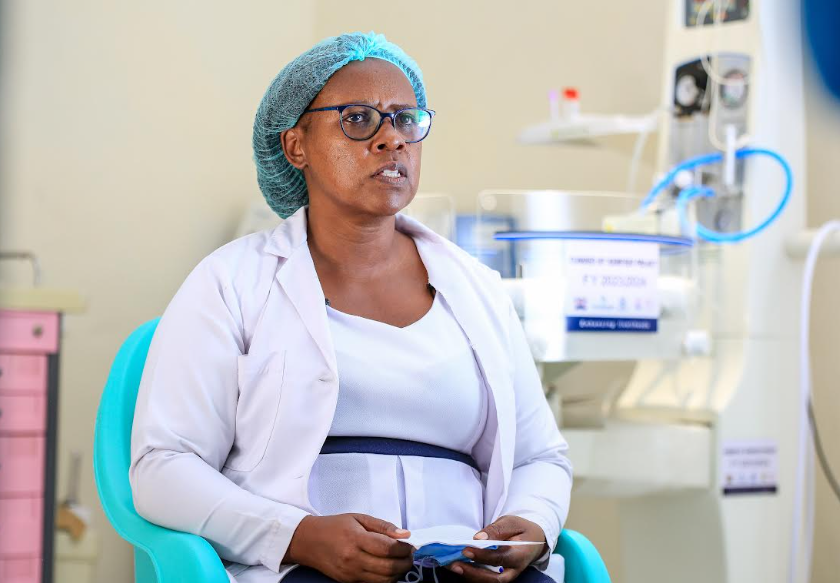
Saving Lives From the First Breath
Veteran nurse Lucy Muthe has worked at Port Reitz since 2005. As Maternity Unit In-Charge, she has seen the best and worst of what public maternal healthcare can offer. The newborn unit, she says, has redefined the hospital’s capacity — and spirit.
“I’ve seen the difference firsthand. Since the NBU opened, we’ve had close to 300 admissions. Most of them were managed successfully right here, without the need for referral,” she says proudly.
“Before, we’d deliver a baby and immediately realize they needed urgent care. But we had to call Coast General, find out if they had a bed, arrange for an ambulance — all of which took time we didn’t have. Now, we stabilize and care for those babies right here.”
For the first time in years, Port Reitz has reported no maternal deaths in 2025. It’s a significant milestone — one that Nurse Lucy attributes largely to the presence of the newborn unit.
“The only babies we’ve referred this year are those needing advanced cardiac or ICU care. The rest — we’ve managed ourselves. And that’s because of this facility.”
Transforming Public Perception
The impact of the newborn unit extends beyond survival. It’s changing how women in Mombasa view public healthcare.
“Most people used to get a lot of problems, but now, we are getting a lot of help,” Sharlet says. “The services are very, very good.”
Trust in the system is growing. More women are delivering at the hospital. More infants are receiving quality care from the moment they take their first breath. And communities that once viewed public maternity care with skepticism are embracing a new reality.
The hospital, once overwhelmed and under-equipped, now receives referrals from as far as Likoni — a testament to the ripple effect of a single, well-executed intervention.
A Model for Public–Private Collaboration
Governor Abdullswamad Nassir praised the initiative as a model for meaningful corporate engagement.
“The launch of this facility signifies a monumental step forward for the health of Mombasa’s mothers and infants, granting them immediate access to critical medical services,” he said during the unveiling.
“Our continued collaboration with KPC reflects our joint commitment to raising healthcare standards and realizing the goal of affordable universal healthcare for all Kenyans.”
The facility supports Kenya’s broader ambition under Universal Health Coverage (UHC) and aligns with sustainable development goals focused on maternal and child survival.
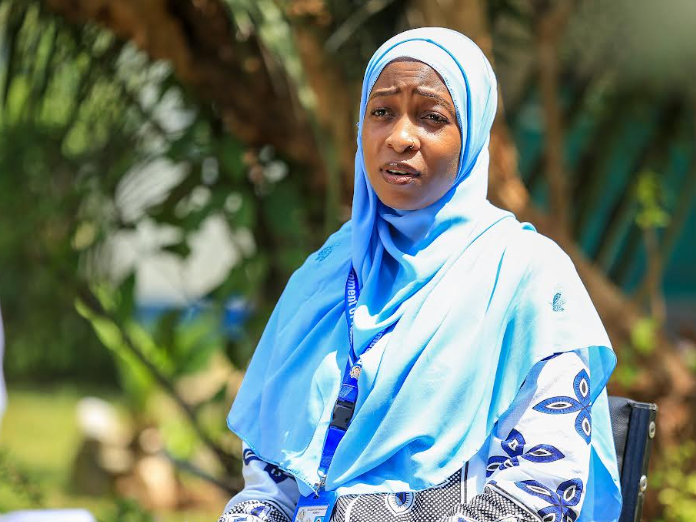
Challenges Remain — But So Does Hope
Despite the success, the hospital faces ongoing challenges.
“Currently, we have eight nurses and two pediatricians supporting the newborn unit,” says Dr. Mulemba. “But with rising admissions and more referrals from across the county, we need more nurses to ensure 24/7 care. Babies require constant monitoring.”
Even so, she remains hopeful. The progress achieved in under a year is encouraging — and proof of what’s possible when strategic partnerships take root.
“This unit has re-energized our staff. It has given the community new trust in our hospital. It has shown what we can do when we are supported,” she says.
A Legacy of Life
Back in the Kangaroo Ward, Sharlet watches her newborn’s tiny chest rise and fall against hers. She doesn’t know all the technicalities — the incubators, the CPAP machines, the funds and meetings that made this moment possible.
What she does know is that, this time, she didn’t have to say goodbye. This time, her baby had a fighting chance — and won.
“I feel like I’ve been given another chance,” she says, tears of gratitude in her eyes. “I thank God, and I thank everyone who made this possible.”
And with that, Port Reitz Hospital — once a place of referrals and regrets — has become a place of resilience and rebirth.
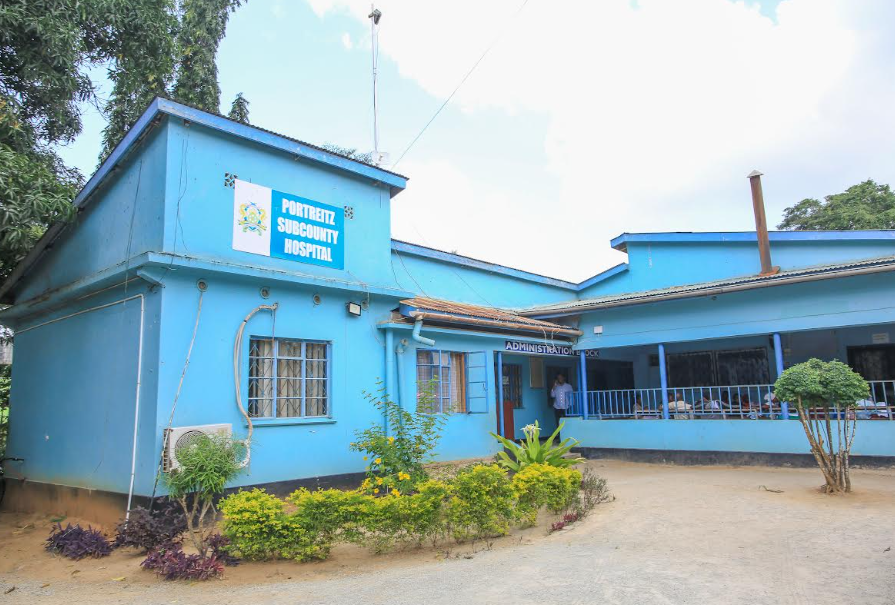
The Port Reitz Hospital in Mombasa. /JOHN CHESOLI













